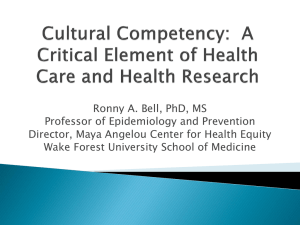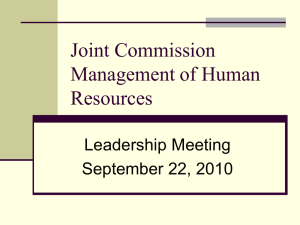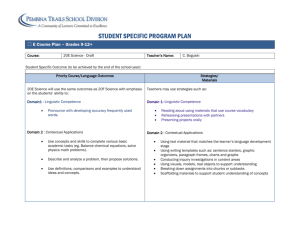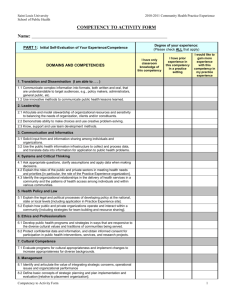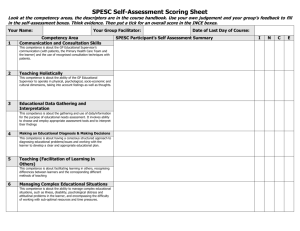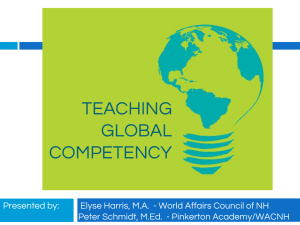Competency to Activity Worksheet
advertisement
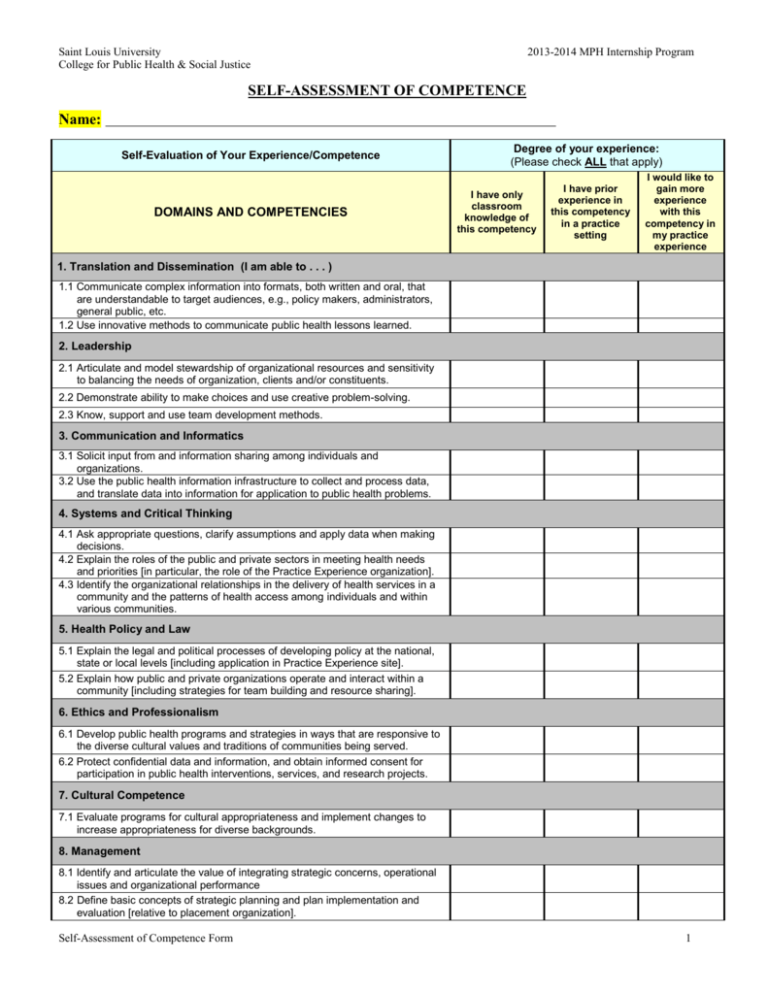
Saint Louis University
College for Public Health & Social Justice
2013-2014 MPH Internship Program
SELF-ASSESSMENT OF COMPETENCE
Name:
Self-Evaluation of Your Experience/Competence
DOMAINS AND COMPETENCIES
Degree of your experience:
(Please check ALL that apply)
I have only
classroom
knowledge of
this competency
I have prior
experience in
this competency
in a practice
setting
I would like to
gain more
experience
with this
competency in
my practice
experience
1. Translation and Dissemination (I am able to . . . )
1.1 Communicate complex information into formats, both written and oral, that
are understandable to target audiences, e.g., policy makers, administrators,
general public, etc.
1.2 Use innovative methods to communicate public health lessons learned.
2. Leadership
2.1 Articulate and model stewardship of organizational resources and sensitivity
to balancing the needs of organization, clients and/or constituents.
2.2 Demonstrate ability to make choices and use creative problem-solving.
2.3 Know, support and use team development methods.
3. Communication and Informatics
3.1 Solicit input from and information sharing among individuals and
organizations.
3.2 Use the public health information infrastructure to collect and process data,
and translate data into information for application to public health problems.
4. Systems and Critical Thinking
4.1 Ask appropriate questions, clarify assumptions and apply data when making
decisions.
4.2 Explain the roles of the public and private sectors in meeting health needs
and priorities [in particular, the role of the Practice Experience organization].
4.3 Identify the organizational relationships in the delivery of health services in a
community and the patterns of health access among individuals and within
various communities.
5. Health Policy and Law
5.1 Explain the legal and political processes of developing policy at the national,
state or local levels [including application in Practice Experience site].
5.2 Explain how public and private organizations operate and interact within a
community [including strategies for team building and resource sharing].
6. Ethics and Professionalism
6.1 Develop public health programs and strategies in ways that are responsive to
the diverse cultural values and traditions of communities being served.
6.2 Protect confidential data and information, and obtain informed consent for
participation in public health interventions, services, and research projects.
7. Cultural Competence
7.1 Evaluate programs for cultural appropriateness and implement changes to
increase appropriateness for diverse backgrounds.
8. Management
8.1 Identify and articulate the value of integrating strategic concerns, operational
issues and organizational performance
8.2 Define basic concepts of strategic planning and plan implementation and
evaluation [relative to placement organization].
Self-Assessment of Competence Form
1
Saint Louis University
College for Public Health & Social Justice
DOMAINS AND COMPETENCIES
2013-2014 MPH Internship Program
I have
classroom
knowledge only
of this
competency
I have prior
experience in
this competency
in a practice
setting
I would like to
gain more
experience
with this
competency in
my practice
experience
9. Program Planning
9.1 Identify existing effective evidence-based programs and materials appropriate
to organization needs.
9.2 Identify socio-demographic, cultural, and political issues related to
organization’s audiences and stakeholders.
9.3 Assess critically evaluation reports and contribute to design of effective
evaluation methods.
10. Public Health Biology
10.1 Discuss the biology of major determinants of national and global public
health [and as related to health goals of placement organization].
10.2 Apply knowledge of biology to development and implementation of disease
prevention, control and management programs.
11. Behavioral Science Core
11.1 Describe the concepts of health, health promotion, health education, and
community participation {especially as relevant to organization].
11.2 Assess the extent to which health promotion strategies are accomplishing
their intended goals through the application of appropriate methods of
evaluation.
11.3 Explore the impact of policy on behavior change and other outcomes.
12. Biostatistics Core
12.1 Articulate basic concepts of probability, random variables, and distributions,
and apply descriptive techniques commonly used to summarize data.
12.2 Communicate statistical analyses and results at a level appropriate to those
either experienced or inexperienced in quantitative methods.
13. Environmental/Occupational Health Core
13.1 Recognize interactions between genetic, physiologic, psychosocial, and
cultural factors that affect susceptibility to environmentally linked adverse
health outcomes.
13.2 Identify and communicate strategies for preventing and controlling hazards
within the biological, cultural, and behavioral context of populations.
14. Epidemiology Core
14.1 Identify leading public health problems, key risk factors and methods for
collecting, analyzing, and reporting surveillance data for these health
issues.
14.2 Able to interpret results, make appropriate inferences based on results and
recognize public health and clinical implications of results.
14.3 Describe the key facilitators and barriers to the use of epidemiologic data for
public health and policy-related decision-making.
15. Biosecurity and Disaster Preparedness Core
15.1 Work with and through people in various emergency response organizations
to enhance their ability to respond to disasters.
15.2 Define the components of an agency emergency management plan.
15.3 Describe the primary biological, chemical, radiological, and agricultural
agents of concern, and the histories, methods of delivery, and unique
public health challenges posed by each.
Self-Assessment of Competence Form
2
